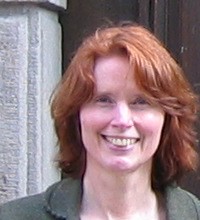Today you did some writing about the big emotions in your past - events that evoked intense (often conflicted or confusing) feelings. Within the different experiences you raised we connected to more abstract topics including :
who is responsible for our emotions;
how feelings can sometimes be experienced most intensely on behalf of someone else;
how sometimes it takes us a while to feel what we are "supposed" to be feeling;
how different emotions are connected so that one emotion leads to another;
how our understanding or interpretation of emotional experiences changes over time;
and a few that I forgot.
As usual your writing and reflecting was honest and important. You are doing fine work for this course.
We then turned to freewriting to open up a topic for your first paper - and I didn't give you enough time. If you have trouble freewriting and hate doing it - this is could be a sign that you might benefit from it. It only takes 10 minutes and should result in a page of writing. Think of it as a race between your hand and your mind and the object to get good enough so that your mind always wins (meaning you never stop writing). It works to "turn off your editor" so you get a chance to play around with ideas that your internal editor would block before you even really thought about them. So do a freewrite - at least 10 minutes wort - for homework, in your journal.
We finished class by briefly looking over the sample essays in terms of the assignment sheet. In general - these are very high level works, so the "reflection " part is embedded in the story in very artful ways (repeated phrases or metaphors, in the form or segmenting, in essay's movement back and forth in time, and so on). Your essay will probably be more direct - where you say straight out what you are thinking about - like Alexie or Orwell or Didion. For your first draft - make sure you have some reflections in mind - but focus on getting the stories down.
For Thursday:
Read:"How to tell a true war story" by Tim O'Brien.
Blog 7: What is the "truth" in this story? What does O'Brien believe about truth?
Adrift Film Gratuit A Voir
4 years ago
